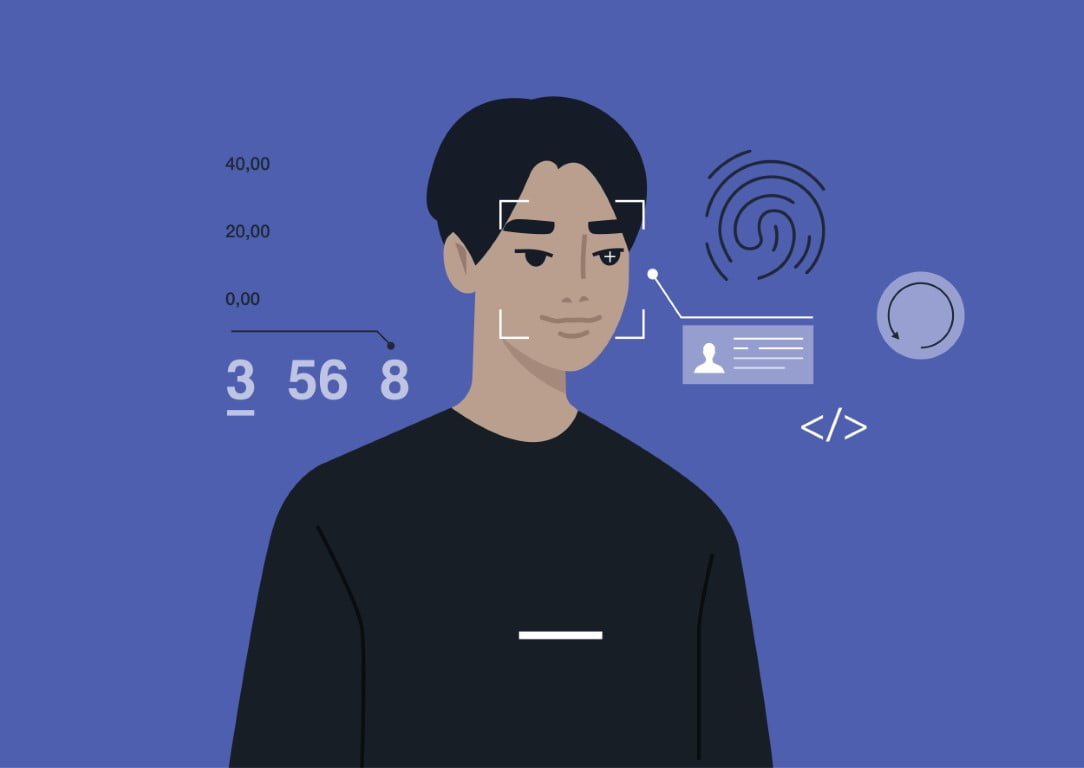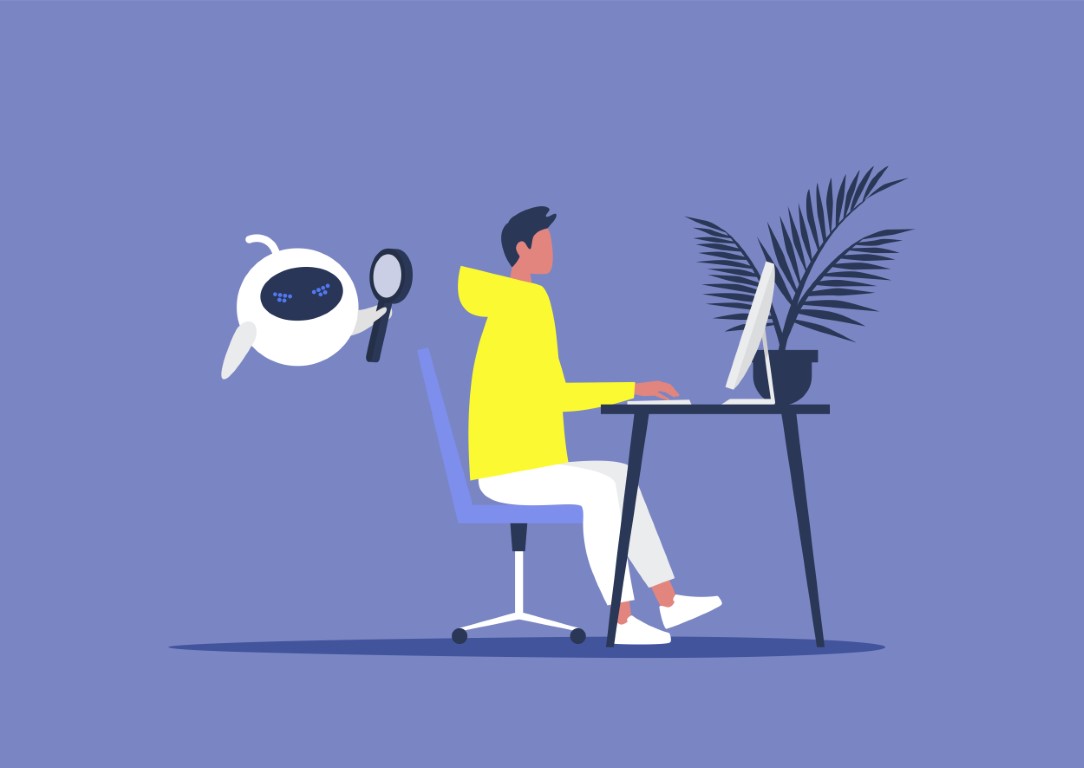Table of Contents
Intro to AI-Generated Music
Music has always been an art form that has captivated the world, and with the advancement of technology. The creation of music has become even more accessible. One of the most intriguing innovations in the music industry in recent years is the use of artificial intelligence (AI) to generate music. AI-generated music refers to music that is created by algorithms, often using machine learning techniques to analyze and replicate patterns found in existing music. As AI-generated music becomes more prevalent, it is important to consider both the potential benefits and ethical implications of this technology.
Firstly, it is important to consider the potential of AI-generated music. One of the biggest advantages of this technology is that it has the ability to create music that is both unique and innovative. With the use of AI, new musical patterns and structures can be created that have never been heard before. Leading to a whole new world of musical possibilities. Additionally, AI-generated music has the potential to help musicians and producers with the creative process. As AI algorithms can assist with tasks such as chord progression and melody creation.

Secondly, it is important to consider the ethical implications of AI music. One of the biggest concerns is the potential impact on the music industry and musicians. With the ability to create music quickly and at a lower cost, there is a risk that AI music could replace human musicians and reduce job opportunities in the industry. Furthermore, there is a risk that AI-generated music could lead to a loss of cultural diversity. As the algorithms used to create the music may replicate certain musical styles and patterns that are dominant in the industry.
Lastly, it is important to consider the ethical implications of using AI-generated music for commercial purposes. For example, there is a risk that companies could use AI-generated music to create background tracks for advertisements or other commercial purposes. Without properly compensating the musicians or artists who created the original samples used in the algorithms. Additionally, there is a risk that AI-generated music could be used to manipulate the emotions or thoughts of listeners. Leading to concerns about the ethical use of this technology.
Our Music Ethical Standpoint
Artificial intelligence (AI) has transformed many industries, and the music industry is no exception. AI-generated music, which is created using algorithms that analyze and replicate patterns found in existing music, has the potential to revolutionize the way we create and consume music. However, as with any new technology, it is important to consider the potential benefits and ethical implications of AI-generated music.
On the one hand, AI music has the potential to offer unique and innovative compositions that have never been heard before. By using machine learning algorithms to analyze and identify patterns in music, AI-generated music can create new musical patterns and structures. This is leading to a whole new world of musical possibilities. Additionally, AI music has the potential to assist musicians and producers with the creative process. For example, AI algorithms can be used to help with tasks such as chord progression and melody creation.
On the other hand, there are ethical implications associated with the use of AI music. One of the biggest concerns is the potential impact on the music industry and musicians. There is a risk that AI-generated music could replace human musicians and reduce job opportunities in the industry. Furthermore, there is a risk that AI-generated music could lead to a loss of cultural diversity. As the algorithms used to create the music may replicate certain musical styles and patterns that are dominant in the industry.
Music Stats
AI songs created in 2022.
Number of songs created by 2025
Length of AI generated song
Brief History of AI-Generated Music
Artificial intelligence (AI) has been making waves in the music industry in recent years, with the rise of AI music. AI music is created using algorithms that analyze and replicate patterns found in existing music. This technology has the potential to revolutionize the way we create and consume music. But it is important to understand what AI-generated music is its brief history, and the growing popularity and prevalence of this genre. Firstly, AI music is created using machine learning algorithms that are trained on large datasets of music. These algorithms analyze patterns in the music, such as chord progressions, melody, and rhythm, and then use this data to create new compositions. This process can be used to create music that is similar to existing genres or to create entirely new styles of music. AI music has the potential to offer unique and innovative compositions that have never been heard before.
While AI-generated music may seem like a recent development, its history can be traced back to the 1950s. The computer scientist Hiller and composer Isaacson created the first computer-generated music piece, titled “Illiac Suite”. The piece was created using an IBM computer and included twelve short compositions. The experiment proved that computers could be used to create music, but the process was time-consuming and required a lot of resources. In the 1980s and 1990s, with the rise of personal computers, software programs that enabled users to create music using pre-programmed sound sequences became popular. However, these programs had limited functionality, and the music they created often lacked the nuance and complexity of human-created music.
With the advancement of machine learning and deep learning algorithms, AI-generated music has become more sophisticated and nuanced. In recent years, companies such as Amper Music and AIVA have developed AI music creation platforms that enable users to create original compositions using AI algorithms. The growing popularity and prevalence of AI-generated music can be attributed to a few factors. Firstly, AI-generated music has the potential to offer new and innovative musical styles, which can be attractive to listeners looking for something fresh and unique. Additionally, AI-generated music has the potential to assist musicians and producers with the creative process, making it easier to create new compositions.
Furthermore, AI music is being used in a variety of industries, such as gaming and advertising. For example, the video game industry has been using AI-generated music to create dynamic soundscapes that respond to player actions, creating a more immersive gaming experience. In the advertising industry, companies are using AI-generated music to create background music for commercials and other marketing materials. While AI music has many potential benefits, there are also concerns about the impact it could have on the music industry and musicians. With the ability to create music quickly and at a lower cost, there is a risk that AI music could replace human musicians and reduce job opportunities in the industry. Furthermore, there is a risk that AI-generated music could lead to a loss of cultural diversity.
Algorithms used to create the music may replicate certain musical styles and patterns that are dominant in the industry.
What is Potential of AI-G Music
Artificial intelligence (AI) has opened up new possibilities in the music industry, and AI-generated music is an exciting development that has the potential to revolutionize music production and consumption. In this article, we will explore the advantages and benefits of AI-generated music, examples of successful AI music compositions, and how AI-generated music can enhance music production and consumption.
Advantages and Benefits of AI-Generated Beats
The advantages and benefits of AI music are numerous. Firstly, AI-generated music has the potential to offer new and innovative musical styles that have never been heard before. By analyzing patterns in existing music, AI algorithms can create compositions that are unique and distinct. Additionally, AI music can be used to create music quickly and efficiently, which can save time and reduce costs for musicians and producers. This can also enable musicians to experiment with new styles and compositions that they may not have considered before.
Another advantage of AI-generated music is that it can assist musicians and producers in the creative process. By providing AI music as a starting point, musicians can use it to develop their own compositions and explore new directions in their music. This can help musicians to break out of creative blocks and to create new music that is inspired by the music they have heard.
Examples of Successful AI-generated Music
Examples of successful AI music compositions are emerging, with AI-generated music being used in a variety of genres and styles. In 2018, Sony released “Daddy’s Car,” which was composed by AI algorithms trained on the Beatles’ music. The song has been praised for its catchy melody and resemblance to the Beatles’ style. Another example is “Break Free,” a song composed by Amper Music’s AI algorithms. The song features an upbeat electronic sound and has been used in a variety of commercial and advertising applications.
How to Use AI to Enhance Music Production?
AI-generated music can be used to enhance music production and consumption in various ways. For example, AI algorithms can be used to analyze and classify music, which can help to categorize music more effectively and enable listeners to discover new music more easily. Additionally, AI music can be used to create personalized playlists that are tailored to individual listeners’ preferences. This can enhance the listening experience and enable listeners to discover new music that they may not have found otherwise. Moreover, AI-generated music can be used to create dynamic soundscapes that respond to user inputs. This can be especially useful in the gaming industry, where AI music can be used to create immersive soundtracks that respond to player actions. By creating dynamic music that changes depending on the gameplay, AI-generated music can enhance the gaming experience and create a more engaging and immersive environment.
Producing music is an exciting development that has the potential to revolutionize the way we create and consume beats. The advantages and benefits of AI music include the ability to create new and innovative musical styles, to assist musicians and producers in the creative process, and to enhance music production and consumption. Examples of successful AI-generated music compositions are emerging, and this technology is being used in a variety of industries such as gaming and advertising. As AI music continues to evolve and develop, it will be interesting to see how it is used in the future and the impact it will have on the music industry and music consumption.
Ethical Implications
Artificial intelligence (AI) has opened up new possibilities in the music industry, and AI music is an exciting development that has the potential to revolutionize music production and consumption. However, with any new technology, it is important to consider the ethical concerns and considerations surrounding AI-generated music, as well as the potential impact it may have on the music industry and musicians. In this article, we will explore these issues and examine the ethical implications of using AI-generated music for commercial purposes.
In terms of the potential impact of AI-generated music on the music industry and musicians, there are both positive and negative possibilities. On the positive side, AI-generated music could lead to new and innovative musical styles, as well as new opportunities for collaboration between human musicians and AI algorithms. Additionally, AI music could enable musicians to create and produce music more efficiently, which could lead to cost savings and increased productivity.
However, there are also potential negative impacts of AI music on the music industry and musicians. As mentioned earlier, there is a concern that AI-generated music could lead to a decrease in demand for human musicians and composers. Additionally, there is a concern that AI music could lead to a further concentration of power in the music industry, as the companies that own and control the AI algorithms used to create music may have a significant advantage over independent musicians and smaller record labels.
Companies Who Develop Ai-Generated Music
Google Magenta
A research team at Google AI that is working on developing new ways to use AI to create music.
MusicLab
Develops music creation tools. MusicLab has a number of products, including MuseScore
OpenAI Jukebox
An AI system that can generate music in any style. Jukebox was trained on a massive database.
IBM Watson
IBM Watson is a cloud-based AI platform that can be used to create music.
Amper Music
A cloud-based AI platform that can be used to create music. Amper Music has a number of features
Landr
Cloud-based AI mastering service. Landr uses AI to master and improve the music.
Job Loss for Musicians and Composers
The first ethical concern surrounding AI music is the potential loss of jobs for musicians and composers. As AI algorithms become more sophisticated, they may be able to create music that is comparable to or even better than human-created music. This could lead to a decrease in demand for human musicians and composers, which could have a negative impact on their livelihoods. Additionally, there is a concern that AI-generated music could lead to a homogenization of music, as AI algorithms may be programmed to create music that is popular and commercially viable, rather than music that is innovative and unique.
Ownership and Copyrights
Another ethical concern that arises with AI music is the issue of ownership and copyright. In traditional music production, the rights to a musical composition typically belong to the composer or songwriter, who retains creative control and receives compensation for their work. However, in the case of AI-generated music, the question of ownership becomes more complicated. One of the challenges is determining who owns the rights to the music created by an AI algorithm. Should the algorithm itself be considered the author of the music, or should the person or company that developed the algorithm be considered the owner? Additionally, if the AI algorithm was trained on pre-existing musical works, who owns the rights to those works and how should they be attributed?
Another concern is the issue of how to attribute authorship for AI music. In traditional music production, attribution of authorship is generally straightforward – the composer or songwriter is credited as the author of the work. However, in the case of AI-generated music, it is unclear how authorship should be attributed. Should the algorithm be credited as the author, or should the person or company that developed the algorithm be credited? This is a complex issue that has yet to be fully resolved.
Framework
As AI-generated music becomes more prevalent, it will be necessary to develop new frameworks for ownership and attribution that take into account the unique characteristics of this technology. It is important that these frameworks are developed in a way that is fair to all parties involved, including musicians, AI developers, and consumers. Ultimately, the issue of ownership and copyright for AI-generated music raises fundamental questions about the nature of creativity and authorship. As we continue to explore the potential of AI-generated music, it is crucial that we engage in open and honest dialogue about these issues and work together to develop solutions that are ethical, transparent, and fair.
Bias
One of the concerns that has been raised about AI-generated music is the potential for bias in the algorithms used to create it. AI algorithms are only as good as the data they are trained on, and if the data is biased, the resulting music may also be biased. This can have significant implications for musicians and the music industry as a whole.
For example, if the data used to train an AI algorithm is mostly composed of music created by male musicians, the resulting AI music may also reflect a bias towards male musicians. This could perpetuate existing biases in the music industry and make it harder for marginalized groups to gain recognition and success. Moreover, if AI music perpetuates biases, it may have negative societal impacts by reinforcing stereotypes and further marginalizing already underrepresented groups.
Algorithm
To address this concern, it is important to ensure that the data used to train AI algorithms is diverse and inclusive. This can be accomplished by collecting and using data from a wide range of sources, including music created by musicians from diverse backgrounds and cultures. Additionally, it is important to carefully examine the algorithms themselves for potential biases and to actively work to correct any biases that are identified. Furthermore, it is important to engage with and empower marginalized groups within the music industry. This can include providing opportunities for musicians from underrepresented groups to participate in the creation and training of AI algorithms, as well as actively promoting and supporting their music.
By doing so, we can ensure that AI music is inclusive and reflective of the diverse range of voices and experiences within the music industry and society at large. Overall, while AI music has the potential to revolutionize the music industry, it is important to consider the potential biases and ethical implications of this technology. By taking proactive steps to address these concerns and engage with marginalized groups, we can ensure that AI-generated music is developed and used in a responsible and ethical manner that benefits musicians and listeners alike.
Commercial Use and AI-Generated Music
Lastly, there are ethical implications of using AI music for commercial purposes. For example, if a company uses AI-generated music in an advertising campaign, is it appropriate to profit off of music that was created by a machine? Should there be a requirement to attribute the music to the algorithm that created it, or to the human who programmed the algorithm? These are important questions that need to be addressed as AI-generated music becomes more prevalent in commercial settings.
While AI music has the potential to revolutionize music production and consumption, it is important to consider the ethical concerns and implications of this technology. The potential loss of jobs for musicians and composers, the ownership and copyright of AI-generated music, and the potential biases in the music created by AI algorithms are all important issues that need to be addressed.

Steps to Make Beats With Amper Music
Amper Music is a popular AI music generation tool that allows users to easily create custom music tracks using AI algorithms. Whether you’re a musician, filmmaker, or content creator looking to add some original music to your projects, Amper Music makes it easy to generate high-quality music with just a few clicks:
Step 1: Sign up and log in
To get started with Amper Music, you will need to create an account on their website. You can sign up for a free trial or purchase a subscription to access more advanced features. Once you have created your account, log in to the dashboard.
Step 2: Choose a project type
Amper Music offers several project types to choose from, including YouTube videos, podcasts, and games. Select the project type that best suits your needs.
Step 3: Choose a mood
You can choose a mood for your music, such as happy, sad, or epic. Select the mood that best fits the tone and style of your project.
Step 4: Choose a genre
Next, choose a genre for your music, such as pop, electronic, or orchestral. Amper Music offers a wide variety of genres to choose from, so you can find the perfect sound for your project.
Step 5: Customize your music
Once you have selected your project type, mood, and genre, you can customize your music further by adjusting the tempo, intensity, and other parameters. Amper Music offers a user-friendly interface that makes it easy to tweak and fine-tune your music to your liking.
Step 6: Preview and download your music
Once you are satisfied with your music, you can preview it and download it in a variety of file formats, including MP3, WAV, and MIDI. Amper Music also offers advanced features such as stem exports, which allow you to export individual instrument tracks for further editing and mixing.
Bottom Line
The potential and ethical implications of AI music are vast and complex. On one hand, this technology has the potential to revolutionize the music industry and enhance the creative process for musicians and producers. On the other hand, there are ethical concerns regarding the use and development of AI-generated music, including issues around ownership, creativity, and authenticity. As we continue to explore the possibilities of AI-generated music, it is essential that we approach this technology with a responsible and ethical mindset. This includes ensuring that AI-generated music is used to benefit both musicians and listeners alike, and that its development and use are transparent and accountable.
Furthermore, it is crucial to engage in critical analysis of the potential impact of AI-generated music on the music industry and musicians. This technology has the potential to disrupt traditional models of music production and distribution, and it is essential that we consider the implications of this disruption for the livelihoods and well-being of musicians and industry professionals. Lastly, the ethical implications of using AI-generated music for commercial purposes cannot be ignored. As this technology becomes increasingly prevalent, it is important to consider how its use for commercial gain may impact the authenticity and integrity of the music industry.
Call to Action
In light of these considerations, a call to action is necessary for the responsible use and development of GenAI music. This includes engaging in open and honest dialogue around the potential and limitations of this technology, as well as investing in ethical and transparent development practices.

